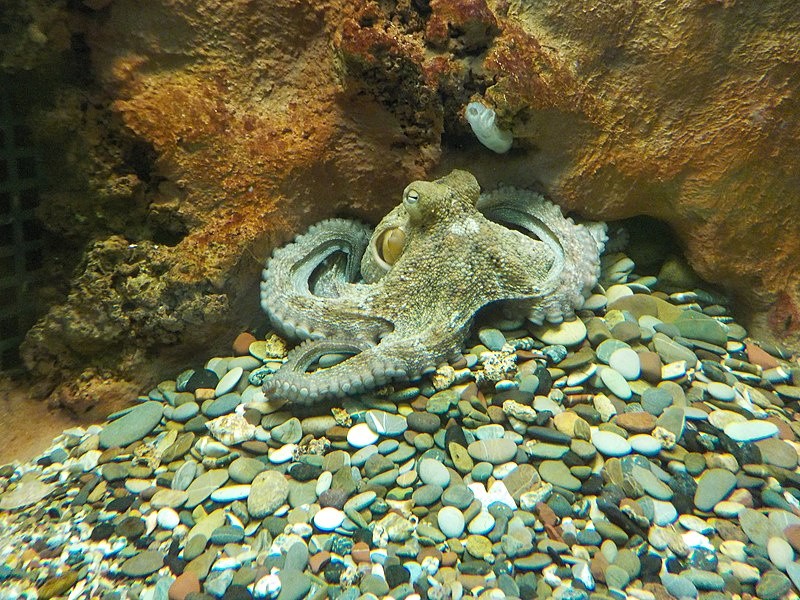'Eight arms pulling you down,' says the octopus boom in Cornwall. Conservationists believe the highest number of sightings in more than 70 years is a reason for celebration, but local fishermen are skeptical.
Chris Chesterfield normally anticipates cuttlefish or spider crabs when retrieving his pots. But lately, the Cornish fisher has been attacked - and outnumbered.
"You've only got one or two arms bringing them up, and they've got eight dragging you down," he adds.
Octopus Sightings

In recent weeks, unprecedented octopuses have been observed in the seas around Cornwall, evoking both jubilation and anxiety over a "population boom."
"I've been fishing for 40 years, and I've never seen anything like this," says Cameron Henry, a Mylor resident who fishes with his two brothers.
He first noticed the spike in late May, when he began hauling out lobster and cuttlefish pots that were noticeably empty because an eight-legged robber had gotten to the bait or prize beforehand. "We had no shellfish - only shellfish remnants."
Henry was also capturing the perpetrators within a few days, often two or three to a pot: "You can imagine how much pleasure it is to pull them out."
The octopus overflow creates an even larger logistical difficulty for Chesterfield, who works alone from Mevagissey in his 30ft boat.
When hanging over the deck, the biggest specimens may reach 1.2m (4ft) - assuming they can keep still long enough, he explains. "They physically put their tentacles over you and turn inside out." They stick to the deck and attach to your legs - unlimited possibilities."
Chesterfield claims to have grabbed 260kg of octopus on one day in early June, equating to about 150 critters. In a regular year, he might capture half a dozen.
"There have been a lot of days when you're lifting 100kg with no issue," he explains. "There are sometimes five or six in one pot."
According to the Cornwall Wildlife Trust, which coordinates volunteer monitoring of local marine species, "massive" numbers of octopus sightings in the region documented by fishermen and divers and snorkelers indicate an unusual population explosion.
Uncommon in the Area
According to Matt Slater, the trust's marine conservation officer, the common octopus (Octopus vulgaris) is an uncommon sight on British seas. "Normally, we'd only anticipate a few sightings and a couple of extremely thrilled divers in a normal year - but now we're receiving reports all the time, which is fantastic."
The species, like many octopuses, live just one or two years but produce up to 500,000 eggs, implying that favorable circumstances might cause large population swings.
Fisherfolks Concern
According to data collected by the Marine Biological Association, the last comparable incident along England's south coast occurred more than 70 years ago, in the summer of 1948. In 1899, a "plague" of octopuses was described.
"It came to the point that fishermen were genuinely concerned about their livelihoods," says Slater. "They were discovering them in rock pools and even laying eggs in them, which is unusual."
Octopus Demands
Although some regard octopuses as a delicacy, there is less demand for them from UK customers than for the crustaceans they devour, raising fears among fishermen that they will be competing for their harvest this summer. "We're seeing so many that it wouldn't take long for them to fish out a region," Henry explained.
He has quickly sold the octopus he has captured thus far but cautioned that if the numbers continued to rise, he would face a problem: "You'll end up overwhelming the market, the price will go out, and you'll end up not being able to get rid of it."
According to him and Chesterfield, sightings have recently decreased, suggesting that this particular consortium may be moving on - either around Land's End or out to sea.
However, it is feasible that octopus booms will become more common. Octopuses, like jellyfish, have been proven to adapt to changing marine ecosystems faster than other species. Many species have already been discovered to have increased their ranges as seas have warmed, and octopuses may be able to survive changes in acidity levels better than other species, according to research published last year.
At least Slater is excited about the boom. He used to work at an aquarium and claims that particular animals learned to recognize his face and preferred him over other employees.
"A pandemic of octopus is something to rejoice about," he says. "I've wanted to witness one of these enormous population expansions one day, and it looks like 2018 may be a good year."
Humane Termination
Slater invites the public to report any octopus sightings on the Cornwall Wildlife Trust's website - but Henry and Chesterfield, on the front lines, are afraid of being swamped.
Both claim to "humanely terminate" their octopus capture by immediately severing the creature's primary brain with a knife between the eyes. That way, "we don't have them crawling all over the yacht as in prior years," Chesterfield explains. "It was a long, hard day until we found out."
Related Article : Female Octopus Avoids Harassment By Hurling Shells at Persistent Male
For more animal news, don't forget to follow Nature World News!
© 2025 NatureWorldNews.com All rights reserved. Do not reproduce without permission.





